Hello, here's another update from Puerto Quito, Ecuador. A few weeks ago, we lost internet access for almost a week it seemed, and I was away for about 5 days or so, so I'm catching up. Here it goes……….. **************** Progress in the language group
The language group is growing. We are now 6, and a few new people have come along, and we are now having two meetings a week (with the same group). We are out of books, so I need to find a way to get some more of the books we use. They are available in the States, and I'm hoping to use them for the group for the school teachers as well. There are places here that will rip off copies cheap, but I prefer the legal way, by finding someone who would want to participate in the mission and buy the books ... What's really lacking here is experience with native English-speakers. There just aren't any, and it's impossible to learn the language without experience with English speakers. So, I'm working to help create English experiences as much as possible. Music, language CD's, movies and movie nights, gatherings with English-based themes, visitors and connecting with folks back home. Then, the idea is to meet and bring up the good, the bad, and the ugly from the experience, and start to practice and apply what's been learned. It's a long process, but a big part of the goal is the friendships and communion along the way ….
"Give, and it will be given to you; good measure, pressed down, shaken together, running over, will be put into your lap. For the measure you give will be the measure you get back." (Lk 6:38) This is the outlook for teaching English, it's that I am sharing what I have, and also hoping to receive the language of the people here. But not just the language, their friendship. And so, the barrier that is the language difference can become a bridge for our relationship. Each person becomes vulnerable in sharing what they have and in receiving from each other. This is what the Gospel always does, it transforms barriers into bridges, it builds us up to newer and deeper relationship with God and each other, to become fuller. It has that power and capability, and that is what my faith is in - the living of the Gospel. These words of Pope John Paul II in his encyclical letter Redemptoris Missio (Mission of the Redeemer) come to mind:
It is not the Church's mission to work directly on the economic, technical or political levels, or to contribute materially to development. Rather, her mission consists essentially in offering people an opportunity not to "have more" but to "be more." by awakening their consciences through the Gospel. "Authentic human development must be rooted in an ever deeper evangelization." The Church and her missionaries also promote development through schools, hospitals, printing presses, universities and experimental farms. But a people's development does not derive primarily from money, material assistance or technological means, but from the formation of consciences and the gradual maturing of ways of thinking and patterns of behavior. Man is the principal agent of development, not money or technology. The Church forms consciences by revealing to peoples the God whom they seek and do not yet know, the grandeur of man created in God's image and loved by him, the equality of all men and women as God's sons and daughters, the mastery of man over nature created by God and placed at man's service, and the obligation to work for the development of the whole person and of all mankind.
But, the work is paying off somehow, even though it doesn't seem like it at times. After one of our celebrations of the Word on el Dia del Nino (Child's Day, yes there's Mother's Day, Father's Day, and Child's Day. We missed out as kids in the States!), I was walking out of the little schoolhouse with two children, and I said something about the way I talk. Then I heard something I did not expect at all. One of the children said, "You talk like us." I had to hear that again. Did I hear right? "What?" "You talk like us." It was as though time stood still. I know little kids like that don't lie, they don't flatter. Like I said, it was as though time stood still …
The great challenge here is that the mentality is very much one of domination, that authority is to be served, rather than to serve. The culture here is steeped in it, it has a long history of it. For example, if you are the teacher, you have the power and are expected to use it. You are actually expected to put heavy burdens on others and not lift a finger to help them. Some want it done to them. And not a few, including those who represent the Church, take advantage of this, and abandon the Lord's words to his disciples:
"You know that those who are supposed to rule over the Gentiles lord it over them, and their great men exercise authority over them. But it shall not be so among you; but whoever would be great among you must be your servant, and whoever would be first among you must be slave of all. For the Son of man also came not to be served but to serve, and to give his life as a ransom for many." (Mk 10:42-45)
There are a lot of excuses to abuse authority, and one of the worst - and most effective - is in the name of helping people and doing good. (The Church can be a great breeding ground for this.) When that has become ingrained in the culture, the presence of a new mentality that equates authority with listening and service is a striking difference that some find easy to embrace and some do not …
*************** New role at school
At the school I am moving into a new role that hopefully is starting soon. I decided that my Spanish isn't where it needs to be to be in the classroom with the kids - many times I could not understand what they were saying. So, the plan now is to start afterschool groups in English for the teachers and the students. The teachers here are expected by the government to have some fluency in English, so this would be very helpful to the school. I'd also have a group of the students who are struggling, and another group, an English group, of students who really want to know more English and English-speaking culture. I'm hoping it starts in a few weeks, things always take a little more time here …
***************** Visiting and Preaching
I go to a few villages now with some of the Franciscan sisters, and we lead celebrations of the Word with Holy Communion. It's like a reduced version of the Mass without a priest, but it is meant to be a participation in the actual Liturgy that takes place each Sunday in the town center that the villagers cannot get to. We ask what the people want and try to satisfy them. The goal is that eventually people from the villages will be leading these services too, so that there will be a rotation and no one person will be the "priest" or seem to hold influence. In the past, the emphasis has been on the priest, doing everything, leading everything, and not much participation from the laity. If the laity do participate, it is because a carrot is dangled, like receiving a sacrament.
It's similar in the catechesis program. We are beginning catechesis in one of the villages, as the people want it and can't yet fully participate in the parish catechesis program. The goal here is that some adults will become confident enough to begin to take these roles on themselves.
But all of this really sits on what we do in our little celebrations of the Word. I get to preach, and it's here that, like it was for me in my first days of encountering God's presence, God can speak most directly into hearts. Most of the people are not ready for sacraments - what is needed, what they want, is a preaching of the Word. We all look forward to it every week.
But how are men to call upon him in whom they have not believed? And how are they to believe in him of whom they have never heard? And how are they to hear without a preacher? And how can men preach unless they are sent? As it is written, “How beautiful are the feet of those who preach good news!” So faith comes from what is heard, and what is heard comes by the preaching of Christ. (Rom 10:14,15,17)
I've also been asked to preach at the prayer gathering in the residence for the disabled, and at a holy hour here on Thursday evenings. My job is just to listen and be faithful to what I hear! ...
****
We visited a sick man in one of the villages a few weeks ago, 96 years old he was. He was in great shape until this past January, walking long distances, though now he is mostly in his bed. He has a brother who is 102. I asked his son what everyone wants to know, "What's the secret?" His answer? "The food." He said that the food that he would have eaten is natural and fresh, but the biggest point he made was about condiments. They don't use condiments and all the complicated things in sauces and dressings that we would use to make the food taste "great". For our pallet, food isn't good enough as it is. We have to make it complicated, we have to doctor it up. And so we end up going to the doctor. And it gets complicated …
Well, one of the advantages of not speaking the language so fluently is that you have to do a lot more listening. We are in this man's room, and it seems like everyone is having discussions, but my head is turning back from one person to the next. I looked over and the old man is doing the same thing.
It was mentioned that the man should be anointed by a priest. Now, when someone is anointed, it identifies that person as being set aside by God, as sharing in Jesus' messianic identity. Christ means "anointed one". Practically speaking, when we listen to someone, when we give them the floor, so to speak, we anoint them king and priest and prophet, like Jesus. So, finally, when most of the people had left, I had the chance to listen to this elderly man. I understood some of what he said, some I did not. But you know, in those 10 minutes were his only opportunity to be listened to while we were there. We can forget that sacraments are outward signs that are meant to be accompanied by realities of the soul and body. Often I think that is missed or forgotten. Sacraments are administered or received without the human relationship that is meant to go with them. And though I have seen some anointings, I can't remember one where there was the awe as though someone was before a christ, much less the Christ. But thanks be to God, that day, this man received the first installment of his anointing…
"I have provided for myself a king … you shall anoint for me him whom I name to you" … Then Samuel took the horn of oil, and anointed him in the midst of his brothers; and the Spirit of the Lord came mightily upon David from that day forward. (1 Samuel 16:1,3,13)
******************* Living: Finbarr leaving
Padre Finbarr is leaving to return home to Ireland for several months on Sunday. There's a special party tomorrow for him going away. I'm grateful for the opportunities he's made available to me, and we'll miss him while he's gone.
Before leaving, Padre Finbarr has been busy trying to get the project for the disabled in a good condition to be managed by others. We've been working together on some of the mission statements, and also to make an internet presence for publicity of the project. I'm hoping to have a Facebook group soon on behalf of the project, where people can interact and find out more about it. When that's ready, I'll post it here for more information ....
I'm also hoping to have something made up in support of my own mission here in Ecuador, with all that's happening here. Hopefully that will happen soon!
I've been cooking at times now, buying some more food that I'm familiar with to complement the local food here. Different pasta plates to start, I hope someday to cook a real burger, maybe the 4th of July?
****************** Deaths here
There were a few local deaths over the last few weeks, of some well-known and liked local people. The mother of the housekeeper here died, leaving her adult children who are very active in the parish and in the school. She had been in the hospital in Quito on oxygen, until being moved into a hospice. The options for medical care here are younger (meaning the whole development is at an earlier stage) that in the States, and very expensive for the folks who live out here in the campo. She passed away after only a few days in the hospice... Many of the students from the school came to the funeral, and what was very moving was that the local public school, which is across the street from the church, took an afternoon break too, and all their students lined the streets for the funeral procession, which was by foot to the cemetery at the end of the road. It was moving to see all the kids standing there in silence. When we got to the cemetery, they brought the casket to a hole in the ground. And they began to bury the casket. That is something that you don't see in the States. Usually, you don't witness the actual burial. But here, there is little protection from the harsh truths …
Now that’s not to say that I don't think it should be witnessed. I think we in States are, like in many other ways, too insulated from realities of life and death. We have a long time to mourn and we don't see the harshness to the reality. But here, they have little time to mourn, and aren't spared any of the harshness. Me personally, I think it would be great if we both grew to the point where we could have some time first, and then could have the emotional closure of witnessing the actual burial….
Another man died in the parish, a man in his early fifties, a well-known catechist. He was out working in the farm with his son, when he just suddenly collapsed and died. After that, the family still held out hope that he would regain his breathe. Usually, you are buried either the next day or the day after, there is no real embalming, and the body decays rapidly. The people don't have the money for the time period like we have in the States. So in this short time, the family was hoping that he might regain his breathe. They wrapped his body in (if I remember right) some type of plant that would keep the skin, they held vigils with different activities like massaging his joints to keep them loose. There was hope that he might be breathing again because of activity that turned out to be natural processes related to death.
Now, it has been known in very rare instances that people do regain their breathe and come back to life. But you can see the suffering of this family who is facing this sudden loss, without the medical capacity to give the certainty and closure that we would have in the States. Given the very short time frame and the uncertainty, you can imagine the difficulty on the day of the funeral, when all the reality sets in at once. You could smell the decay of the body in the church, and the grief from the family was even worse. At the grave-site, as Padre Martin and I approached, one of the sons was crying out uncontrollably. As we left, it extended to other family members, and it was so loud and sad I couldn't help but cry.
Imagine the funeral of your father and the smell of his body fills the air for everyone to smell. Imagine such confusion and holding out hope until the final hours that your Dad is buried in the ground. Their poverty left them without even the chance to grieve. Another way in which the poor suffer. Immediately what came to mind was the words of the parable that Jesus told, where the rich man speaks in the afterlife to Abraham: "Son, remember that you in your lifetime received your good things, and Lazarus in like manner evil things; but now he is comforted here, and you are in anguish." (Lk 16:25) That grief and suffering is not the end. They will be comforted …
****************** Trip to Mindo, Quito, and Guayaquil
A few weeks ago I went with some of the Franciscan sisters here to a place called Mindo. It's a big tourism center for biodiversity, but the sisters were coming here for their monthly meeting, and I was coming to explore a little retreat center here. It was a beautiful one-day trip, and I hope to make it back to the retreat center some day soon. Here are some photos:
To Quito
I've had to go to Quito a few times over the past few weeks as well, to apply for and pick up my empadronamiento. This is a government piece of paper that states that you have a visa and passport. Without one of these, you can't legally leave the country, if you can believe it. I don't know what they could do to stop you from leaving the country. But they could give you a hard time, and they could give you a hard time whenever you want to return. So, I'm glad I have all the paperwork done. The only thing left now for me would be driver's license.
Since I have a missionary visa, I can't apply for a cedula. That is like a social security number that we have in the States, although it has nothing to do with the financial aspect like SSI does. It's basically a government number for permanent residents, and you have to use it all over. It has a lot of tax ramifications, and the government has become amazingly complicated and burdensome with its tax reporting procedures. Basically, you have to start keeping every receipt and record it for tax purposes. It's a ridiculous form of torture, and I notice that things like that are becoming very common here: amazing rigorous attention to details in some areas, while completely missing the bigger problems. In the words of Jesus, "straining out a gnat and swallowing a camel." (Mt 23:24) Not having a cedula and being outside that system, I don't have to worry about that directly, thanks be to God. But there are a lot of places here now that do not accept credit cards without a cedula. I'm limited to cash in many places, which makes it difficult to buy large-priced items, or go shopping for a few weeks' worth of food. But, life goes on!
To Guayaquil
I also took this past weekend to visit another St James Society priest and the local parish in Guayaquil. I met Fr. John Molloy over email last year and promised I would stop by. He was very hospitable to me over the weekend, and he showed me the parish there where I got to meet a number of the local people and get to know them a bit. There's also a group of Americans here from the operation Rostro de Cristo, which was started by another St James priest Fr. Jim Ronan, who is in Charlestown these days. There are about 5 young people who are spending a year living in the parish sharing in parish life and ministry, similar to what I am doing in Puerto Quito. But they are just out of college, and they don't have the grey hairs that I do. One of the things that they do is host groups of other Americans who come down for a 10 day stretch. This weekend, a group was down from Merrimack College in Andover, very close to where I spent my summer in Lawrence a few years ago. One of the girls even had a brother living close to where I grew up in West Roxbury. It was funny and providential that I was with people who had connections to my own childhood neighborhood!
I lost the pictures I had, but here's one. The students did a little presentation for the kids in the catechesis program.
It was good to be in Guayaquil, where it's a different type of life. In Puerto Quito for example, there is a main church, but there are 96 other villages to go and visit. Being rural, the people are really spread out. Here in Guayaquil, it is the opposite. There are two or three churches, and the 40,000 people of the parish live close together. It makes for a different type of life and ministry, but some things are the same.
Pope John paul II wrote about the need for missionary work in the great urban areas in Redemptoris Missio:
"The rapid and profound transformations which characterize today's world, especially in the southern hemisphere, are having a powerful effect on the overall missionary picture. Where before there were stable human and social situations, today everything is in flux. One thinks, for example, of urbanization and the massive growth of cities, especially where demographic pressure is greatest. In not a few countries, over half the population already lives in a few "megalopolises," where human problems are often aggravated by the feeling of anonymity experienced by masses of people. In the modern age, missionary activity has been carried out especially in isolated regions which are far from centers of civilization and which are hard to penetrate because of difficulties of communication, language or climate. Today the image of mission ad gentes is perhaps changing: efforts should be concentrated on the big cities, where new customs and styles of living arise together with new forms of culture and communication, which then influence the wider population. It is true that the "option for the neediest" means that we should not overlook the most abandoned and isolated human groups, but it is also true that individual or small groups cannot be evangelized if we neglect the centers where a new humanity, so to speak, is emerging, and where new models of development are taking shape. The future of the younger nations is being shaped in the cities.
Padre John was very hospitable to me, I'm very grateful. The church is unique in being all bamboo. There's a new soccer court, and they're finishing construction on a new school, among other things. And on top of all that, Fr John is very helpful to members of the parish who are in tough positions financially and spiritually.
He showed me the progress that's been made in this section of Guayaquil. These barrios are started by what are called "invasions". From what I understand, it goes something like this. Someone or a small group leads up the effort to essentially seize land for a large group of outsiders, from more rural locations. The land can be private, but in this case it's the government. They begin to build very simple homes (starting in bamboo), and because of the large numbers of people (hundreds to thousands), the owner of the property cannot do anything really but comply with the "deal" that's being offered.
On the one hand, you have the original land owner, either the government or someone essentially wealthy, who has land forcibly seized from them. Then you have the people working the deal, who usually make out quite well financially. Then, you have the people who come. They are usually very poor, coming from very difficult areas (sometimes there are droughts) because the government has no support for them (the government has been mostly unstable for the past 20 years or so, until recently). They believe that if they move to this barrio outside the city, they will have a home they can afford and access to what is offered in the city. It's basically the poor trying to survive by forcing their way to the doorstep of the "wealthy". Unfortunately, they have been sold bad goods - the life in the barrio is not what they expected. There is no real good access to what the city offers, and the life is more difficult than the campo. There is no running water in the shacks they live in, there is a water truck that goes through the barrio constantly, charging $1 to fill a big barrel. But when it's all said and done, the people are paying double or triple for water what people in the city are paying. Electricity is only recent and sporadic, and there is no place yet for garbage or garbage pick up. The roads are littered with trash, plastic shopping bags being the most common medium. Now, it should be noted that the amount of trash that a family there generates is about 10% of what you would generate in the States. They don't buy much, they don't consume too much, and they don't waste anything. They are very poor. But even though they have little garbage, the streets even the paved ones, smell. Most of those roads, though, are unpaved and become river streams in the daily winter rains. Recently, the government has been adding services bit by bit (it takes time), like electricity and the paving of roads. There is almost no work or jobs, and although there are now many schools, the quality of education isn't that great, although it's improving. But the point is that life is very hard for the people, and it's not what they had hoped for in coming here. Constantly having been a survival mode, without opportunities to get out of it, they are the real victims here. But the people continue, life continues, and by that they give testimony to what are the most important things in life: relationships and faith.
About a month ago, about 400 of these homes were destroyed by the government as it tries to get control of the whole invasion problem. But the people were given a letter with an 8-day warning period - which turned out to be 4 days. Then the police and military came in with bulldozers and knocked down the homes. The whole community was in anguish, even those not directly affected. There are a lot of wounds, and people struggling now to figure out what to do with no home, no money, no job.
A good wage here is about $3500 per year, for people who have jobs. The homes would cost several thousand dollars. There's no collateral for a mortgage or a loan. You can see how it is difficult to live life here. Here are some pictures of where the homes stood:
In contrast, we also visited downtown Guayaquil, the new boardwalk area, and old historic section on a hill, Las Peñas. There has been a sort of urban renewal here, and the pathway that you can walk along the water and then up the hill is very beautiful. Here are some photos:
********************
Well, that's it for now. I am hoping to have something put up on the internet in the near future that offers the possibility for others to participate more in this mission and relationship here in Ecuador. In the meantime, as a retreat director once used to say, let us continue to pray for one another.
Jerome






















